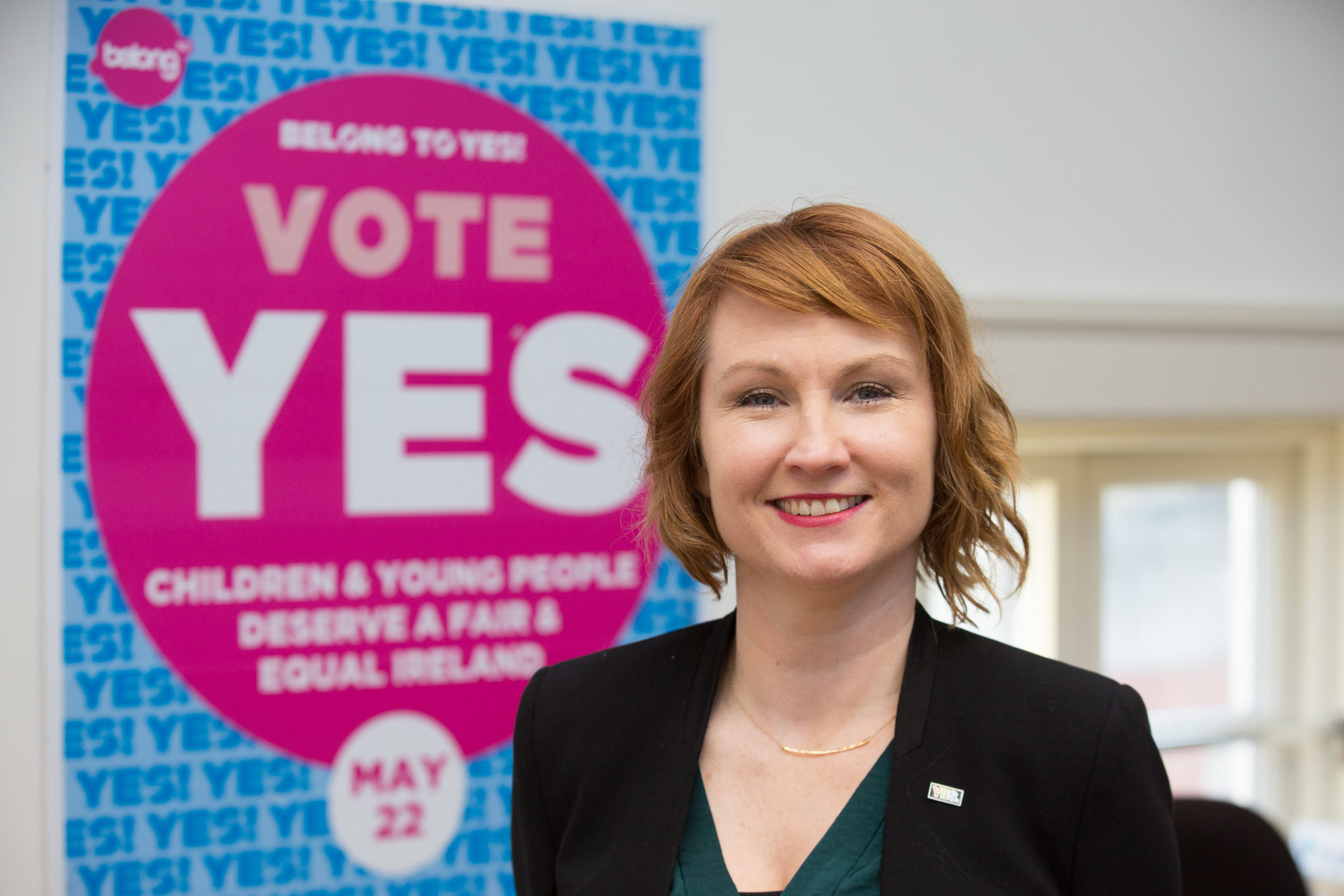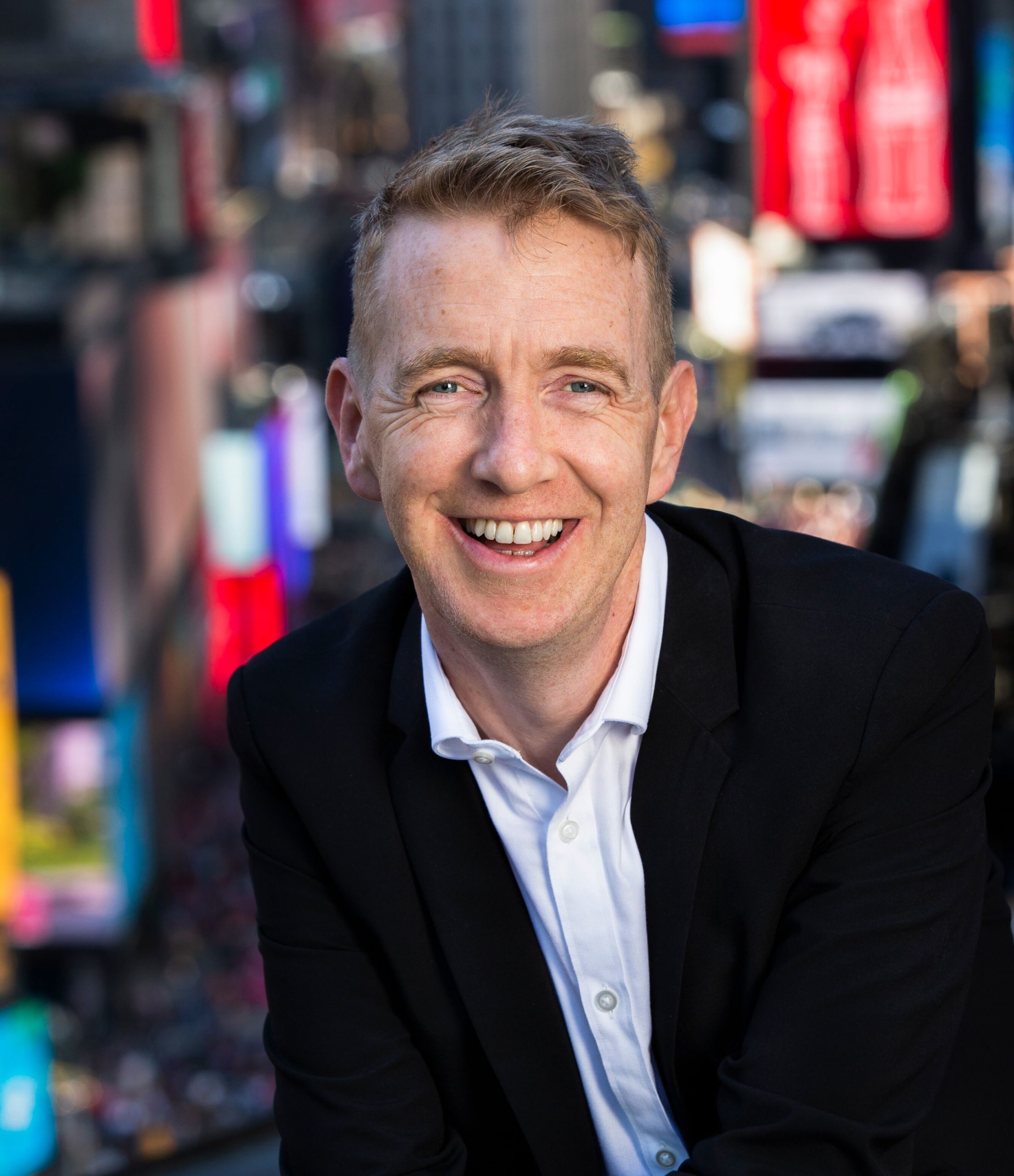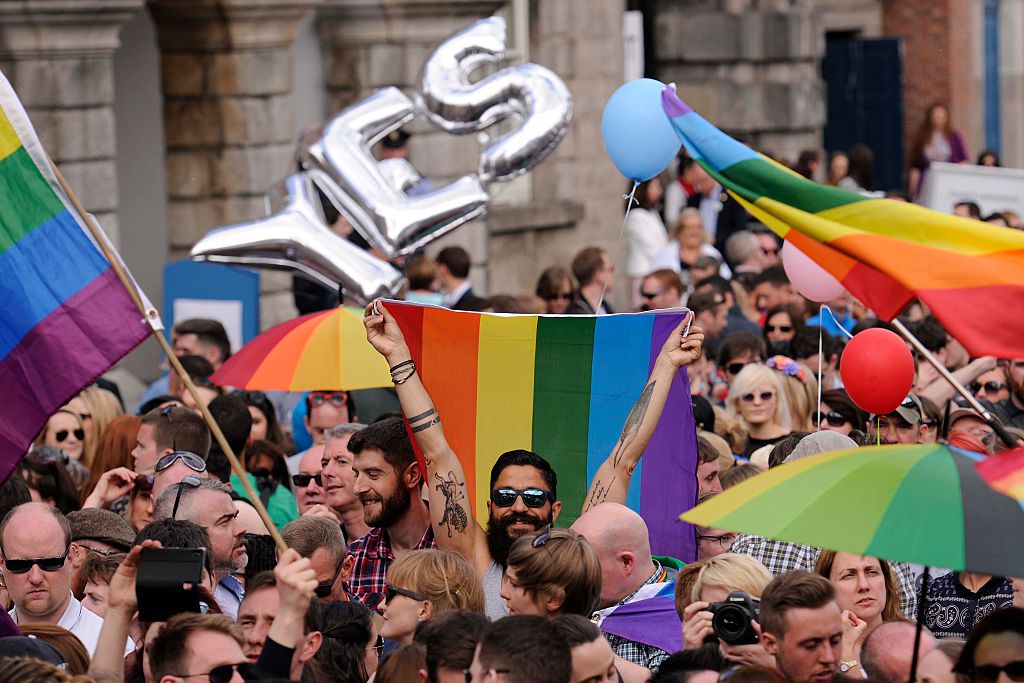People celebrating Ireland’s historic same-sex marriage referendum in 2015 (Clodagh Kilcoyne/Getty)
Five years ago today, people in Ireland went out in their droves and voted in favour of same-sex marriage.
Ultimately, 62 per cent of the public voted in favour of amending the constitution to allow same-sex couples the right to marry, with 38 per cent voting against.
It was a seismic moment for a country that was well-known internationally as being socially conservative. Homosexuality was still illegal in Ireland until 1993; divorce was illegal until 1997 – and abortion remained the subject of a constitutional ban until 2018.
The historic marriage equality referendum on May 22, 2015 was an essential part of that process of change.
But that change was not won overnight – LGBT+ activists had spent years fighting for change in the hope that one day, they would be able to marry their partners.
In a way, it just smashed any stereotype that anyone might have had about Ireland.
On May 23, when the ballot boxes were opened and it became clear that same-sex marriage would become a reality in Ireland, people gathered in Dublin Castle to celebrate and come together as change finally arrived.
Below, three activists who led the charge for change reflect on the incredible moment Ireland said “Yes”.
Gráinne Healy, co-director of the Ireland same-sex marriage campaign Yes Equality.
Gráinne Healy served as co-director of the Ireland same-sex marriage campaign Yes Equality, which urged the public to vote in favour of the constitutional change, but she had spent years before fighting for equal rights.
Looking back, she tells PinkNews that their message to the public was a simple one.
“We urged people to vote yes because they believed in equality,” she says.
And that message could never have been communicated without the tireless work of people across the country. Volunteers went door-to-door, asking their neighbours to vote yes for equality – and the message worked.
“I know there are people who say, ‘I knew for weeks beforehand we were going to win,’ but I can say I didn’t,” Healy says.

“I had hope, but when you’re running a campaign the last thing you can do is to allow anyone to feel complacent about the work that needs to be done right up until the last minute. It wasn’t until the morning of the count when David Quinn, on national radio, conceded, you could then do a sigh of relief.
“And that was what I felt: relief. I felt pride at having been involved in the campaign and mostly I felt so pleased for everyone, gay and straight, who had played a part in the referendum.”
Five years on, Healy says it was “a wonderful milestone in Irish public life”.
“For those of us who are LGBT+ it will always be an amazing milestone, a mark of feeling like we belong in this country, feeling like we’re accepted.”
Moninne Griffith, former director of the Marriage Equality campaign.
“We never envisioned that it would come to a referendum, so it was very nerve-wracking having the rights of a minority group put to the majority of the people,” says Moninne Griffith, CEO of LGBT+ youth charity BeLongTo and former director of the Marriage Equality campaign.
It was a terrifying prospect for activists: not only did they have to convince politicians to enact change, they had to convince the entire nation.
“In the end, it all worked out, and it was one of the most life-affirming experiences as an LGBT+ person to know that the majority of people in your country believe that you deserve equality and equal protection in your relationships.”
Looking back, Griffith says it was “amazing” to see the momentum the campaign gained as the referendum date got closer and closer.

“In the end we felt unstoppable because there were people coming from all sides, from all sectors of the Irish community. Grandparents, young people, working class, middle class, women, men, children’s groups – a huge, vast array of people,” she says.
“We had such a diversity of voices all saying the same thing, which was, come out and vote yes.”
For Griffith, a clear highlight was travelling around Ireland speaking to people in towns and villages and hearing their stories.
“I felt quite confident when it came up to the last few days that we were going to get it across the line because of the thousands of conversations I had had with ordinary folks all across Ireland, some who had LGBT friends and family and others who didn’t.
“They just knew it was the right thing to do and they were proud to be able to exercise their vote.”
The night before the vote, she saw pictures flooding social media of people travelling by plane, train and ferry to get home to vote.
“It was just so emotional, I was blubbing like a baby,” she reflects. “It was so emotional watching people to go such effort to come home and be part of this movement.
Five years on, Griffith says she feels “more affirmed, appreciated and respected” in her country because of marriage equality.
Tiernan Brady, former political director of Yes Equality.
Looking back on that day in May, what Tiernan Brady remembers is the feeling of “unbridled joy”.
“It was this wonderful moment of celebration where a country had voted to say, ‘You’re in’,” he says.
“It’s worth remembering that the joy was in no small measure tied to the stress that went before it,” he adds.
“For so many LGBT+ people and their parents and brothers and sisters, having a public vote on your rights and dignity, it’s tough. And in the world we live in where tone can be so angry, the process was very stressful for people. So not alone was the day this wonderful moment of joy at the result, it was also this gasp of relief after what had been a tough campaign for people.
“I think those two things came together to make this incredible day that is just etched in the memory of not just LGBT+ people, but etched in the memory of Irish people, and will be for as long as any of us are around.
“In a way, it just smashed any stereotype that anyone might have had about Ireland,” he said.

While activists put in a hard graft over the course of many years, Brady says the referendum was ultimately won by the ordinary people across Ireland who campaigned for change.
“The people who won this campaign were people in villages and towns across Ireland who decided that they were going to tell their story, they were going to talk to their family, they were going to knock doors on their street,” he says.
“This was won on the ground, and it was won by people who allowed the people in Cashel and Wexford and Donegal to understand that LGBT+ equality isn’t a what, it’s a who. They allowed people to make that journey. They did it with dignity and respect and this positive engaging tone – it wasn’t about having debates on the doorstep, it was about having conversations.
He adds: “Not alone did they win the vote, but they transformed villages everywhere, because what was probably an issue most people hadn’t thought about suddenly became an issue about Margaret or Kevin.”
